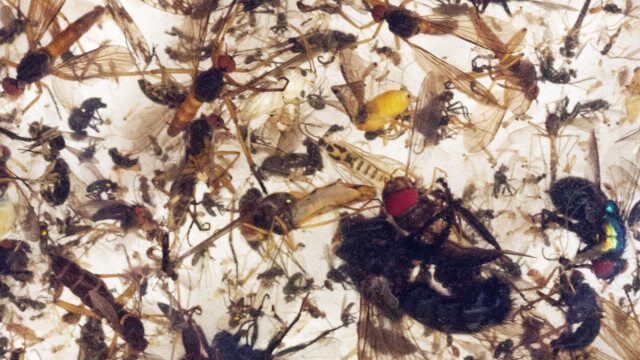The number of flying insects in Germany has declined more than 75 percent over the last three decades, according to a new study of survey data collected from 63 nature preserves in the country. The “dramatic decline” in insects, as the scientists described it, was likely caused by the expansion of agriculture and pesticide use, as well as possibly climate change — and is representative of what researchers are seeing in ecosystems across the globe.
“Insects make up about two-thirds of all life on Earth,” Dave Goulson, a biologist at the University of Sussex in the UK and a co-author of the new study, said in a statement. “We appear to be making vast tracts of land inhospitable to most forms of life, and are currently on course for ecological Armageddon. On current trajectory, our grandchildren will inherit a profoundly impoverished world.”
Researchers have been tracking insect abundance in German nature preserves for 27 years using Malaise traps, mesh tents that trap insects inside and lead them toward collection bottles of alcohol. Data was collected during the spring, summer, and fall. It showed that flying insects in the study sites have declined an average 76 percent over the survey period, with a high of 82 percent in the summer months. The research was published in the journal PLOS ONE.
For more information, click here to read Yale e360’s article on the sharp decline in global insect populations, and why it matters.


